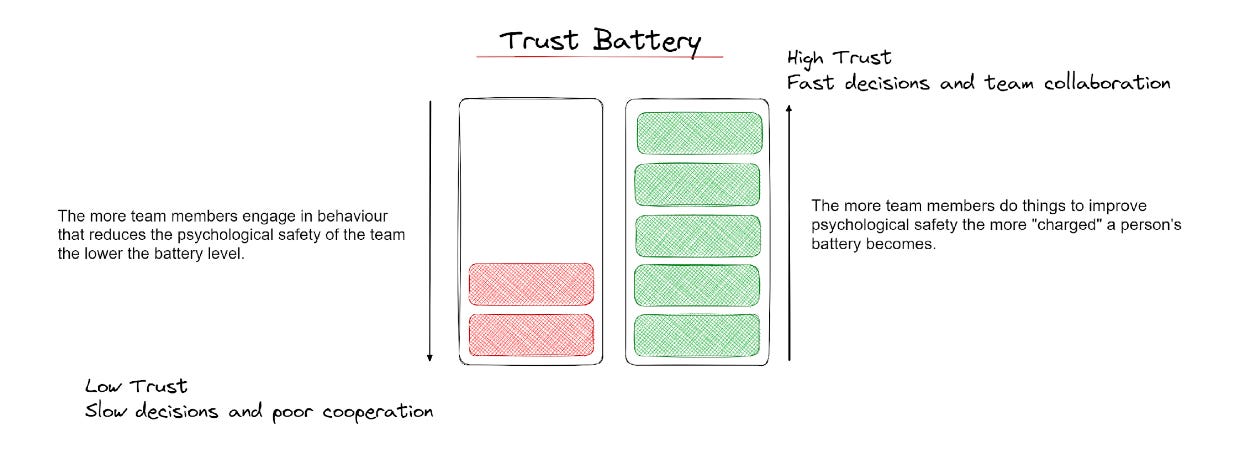Write Like Someone Is Watching (Because They Are)
Build trust, strengthen your brand, and write online with purpose. Learn how clear, consistent writing shapes reputation and opens doors.
We often forget what really fuels visibility, opportunity, and growth. It is not clever tactics, bigger reach, or platform tricks. It is something quieter and harder to fake: trust.
Trust is not a decoration for your career. It is the fragile thread that ties one person to another, and the moment it breaks, nothing else holds. Online, it is built in the small choices you make every day.
That is why I want to bring together three themes usually treated as separate: trust, personal branding, and writing online.
They are not separate at all. They fit together like the sides of a triangle, holding up the weight of your reputation. And if you want to grow professionally, lead projects, change direction in your career, or simply be taken seriously, you cannot ignore how they shape one another.
Let’s take it step by step, from the inside out.
Trust is Not a Trait, It’s an Accumulated Battery
The idea of a Trust Battery was made popular by Tobi Lütke at Shopify. It is a simple picture, but it carries force. Every interaction either charges or drains your battery with someone. And once it is empty, good luck moving anything forward.
Working remotely, leading across time zones, or trying to be seen online, you begin with a battery at zero. Nobody sees your past. Nobody knows your intent. All they have is what you bring in the present: your words, your steadiness, your clarity.
This is where writing becomes your handshake. Your tone is your eye contact. Your rhythm is your body language.
And people are not passive in this. They are weighing you constantly, in the way you explain ideas, in how you hold disagreement, in how you act when no one is watching.
That might sound heavy, but in truth, it is freedom. It means you can build trust before you ever meet someone if you learn to let your writing carry the same presence as you would in person.
Personal Branding is Not Promotion
Let me be honest. I used to dislike the term "personal brand." It sounded like a logo. Or like you had to perform all the time. But the truth is, people will form an opinion about you anyway.
The only choice is whether that opinion is accurate.
In a noisy world, your brand is not built by showing off. It is built by making it easier for others to understand what you stand for, how you think, and how you work.
Here is a practical reframe:
If your LinkedIn headline confuses people, your trust battery drops.
If your writing jumps from topic to topic without focus, your signal fades.
If your posts sound like everyone else's, you are not remembered.
Your personal brand is not about visibility. It is about clarity.
The clearer your thinking, the easier it is for people to trust you, refer you, and work with you.
Writing Online is Not Only Content
Now let’s get to the practical core: writing.
When you write online, especially consistently, you are doing three things at once:
You show that you can think clearly.
You show that you can explain ideas to others.
You build a public record of how your mind works.
This matters more than most people realize. In a moment of endless scrolling and short attention spans, the people who can structure their thoughts in writing gain an unfair advantage. They can scale their thinking. They can influence without authority. And most importantly, they can help people before ever meeting them.
Your writing becomes your working memory online. And over time, it becomes your brand.
But here is the uncomfortable part: it takes time.
You won’t write one post and build trust. You won’t publish a few notes and become a thought leader. That’s not how human minds work.
We trust people when we see them showing up over time, handling nuance, and staying consistent even when it is boring. So if you want writing to work for your brand and for your reputation, treat it like compound interest.
Show up weekly. Be useful. Be human. Let people see you think it out loud.
How to Start Building the Triangle of Trust
If I were starting again today, with limited time, I would focus on three habits:
1. Write one useful thing per week
It does not need to be deep. But it should be useful. A lesson, a reflection, a problem you solved. Keep it simple, but show your mind at work.
2. Make your positioning obvious
Your bio, your About page, your profile headline. These are not decorations. They are signals. They should make it easy for someone to know how you can help.
3. Interact with trust in mind
Every comment, every message, every reply is a battery moment. You’re either charging trust or draining it. So take your words seriously. But also, be kind.
The triangle works like this:
Writing shows your thinking
Thinking shapes your brand
Brand builds trust
Trust opens doors
Not overnight, but reliably.
Final Thoughts… You Are Already Being Googled
The point is not to become an influencer. It is to take some control over the version of you that people discover when they type your name. Because they will.
It could be a hiring manager. It could be a future collaborator. It could be someone who heard your name once in a meeting and is trying to decide what to believe.
If they find nothing, they assume little. If they find noise, they assume chaos. If they find clarity, they lean toward trust.
So the real question is this: if someone searched your name today, would what they find bring them closer to you, or push them away?
That is why I write. That is why I keep showing up. Not because I want attention, but because I want my family, my clients, friends, and the people I may never meet to know what I stand for, how I think, and how I work. Even when I am not in the room.
Writing online is not a performance. It is more like, I would say, a quiet signal. And when it is steady and honest, it becomes the strongest trust battery you have.





I really like this triangle of trust (writing → thinking → brand) mental model.
In technical fields, especially, we often assume our work speaks for itself. But clarity is work. Writing isn’t decoration; it’s how people see how you think.
Trust really is the quiet currency that compounds over time. You can have the slickest branding and the cleverest tactics, but if people don’t believe you’ll do what you say, it all unravels.
I’ve noticed the strongest personal brands aren’t built on noise but on steady consistency, showing up even when there’s no quick win.
According to Edelman’s 2024 Trust Barometer, 59% of people say they choose brands based on trust above price. (source: https://www.edelman.com/trust)